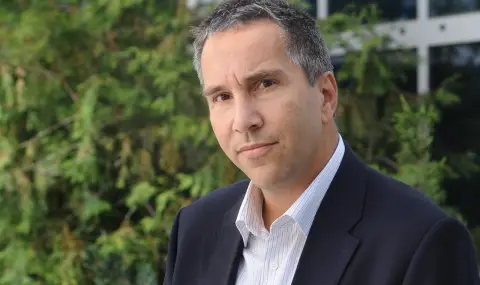How Bulgaria can play a key role in determining EU energy policies. What is the future of nuclear energy in the EU? Such topics were discussed at the conference "Energy security - a basis for the development of European industry". The role of Bulgaria”. It was organized by Tsvetelina Penkova, MEP from BSP and the Group of the Progressive Alliance of Socialists and Democrats in the European Parliament. The forum was also attended by Konstantin Stamenov, Chairman of the Board of the Bulgarian Federation of Industrial Energy Consumers (BIFEC).
- Mr. Stamenov, the EU has adopted a strategy to develop nuclear energy. And Bulgaria wanders between we will build the “Belene” NPP, we will not build, but we decided within a week that we will have new capacities at the “Kozloduy“ NPP. Do you know what we want, actually?
- The issue should be considered very seriously. This means making a professional analysis of what will happen in our country and in the region, what will happen to consumption, what capacities will be lost, how we will balance the system. There are thousands of questions, countless factors. Yes, base power is undoubtedly needed for the design of the power system, but balancing power is also needed.
- At the same time, Turkey is building a second Russian nuclear power plant on our border?
- As you know, Turkey has turned from an importer to an exporter of electricity. And I expect this trend to continue. This is why we – from business, to insist that investments in all sectors are at one's own risk, including and in the power industry. Thus, if a statesman makes a mistake, he does not drag down the entire economy, does not make a hole in the budget.
- You are a representative of the large manufacturing energy users. What are the challenges for the existing energy transmission networks at the moment?
- The main challenge at the moment is the security of an electric transmission system. It sounds very general and far-fetched, but ask ESO and the Central Dispatch Office (CDU) how they are doing. In the morning at 9.00 a.m. several thousand megawatts (about 3000) of the sun appear and after 4.00 p.m. they disappear. And the entire load in the system is 4000-5000 megawatts. If CHPs do not have the flexible capacity to reduce generation and then compensate for the sun's disappearance, the power system will collapse. In the coming months and years, this will be the main challenge, respectively for the industry to have a stable power supply. This means investments in networks, restoration of the "Chaira" PAVETC, construction of a new PAVETC, implementation of batteries, etc. At the same time, note that the price of electricity remains affordable for all domestic and business users.
- How much electricity will the big manufacturers need in the coming years. What are your predictions and will we be able to produce it ourselves or will we start importing?
- The industry is constantly investing in energy efficiency. If you look at the statistics for the last 15 years, there has been a steady decrease in electricity consumption. I don't expect us to suddenly start increasing consumption. Rather, it would come from the replacement of the car fleet from LPG to electric, from the computer processing of large data sets, where there is a huge consumption of basic electricity.
- The RES sector enters the electricity market, but how does it affect the power grid?
- As I said before, it is good that we are becoming more ecological in the generation, but mastering the electricity system is becoming very difficult. Neighboring countries Romania and, to a greater extent, Greece, at the same time have a surplus of electricity production. This will lead to negative electricity prices.
- The RES business is considered good, but do you see a vision for the generated electricity? Produced a lot but not stored?
- For me, the best solution, the most long-term and the most cost-effective are the PAVEC capacities.
- Many large enterprises are building RES parks. What is the effect of this?
- They provide themselves and become independent in some hours from the network.
